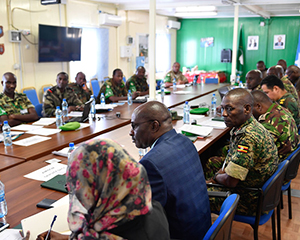International peacebuilding interventions have moved to the forefront of international politics since the 1990s. This shift has led to extensive research on the conditions for successful intervention practices and the normative frictions they often engender within the target countries. Scholars have tracked the evolving approaches to international peacebuilding in several turns: The concept of liberal peacebuilding has been critically examined with a focus on local ownership, followed by calls for more robust or pragmatic mandates. The conceptual debate about blurring lines between peacebuilding and peacekeeping is also a recurring theme.
A pivotal question that arises from the above-mentioned debates concerns the role of coercion in peacebuilding: Are we witnessing a shift towards more coercive (robust) approaches, or has the criticism of liberal peacebuilding and the increasing importance of so-called “emerging” actors from the Global South led to a trend towards less coercion (light footprint) and greater consideration of local ownership and inclusivity? The new PRIF Working Paper No. 61 “Coercion in Peacebuilding: A Conceptual Framework” by Antonia Witt, Jonas Wolff, Melanie Coni-Zimmer, Sabine Mannitz and Sophia Birchinger explores how these questions can be addressed in peace research.
Building on a review of conceptual literature on coercion, the authors propose a conceptual framework to explore the role of coercion in peacebuilding. They examine the intricate relationship between coercion and peace and delineate diverse manifestations of coercion in peacebuilding. The conceptual framework is illustrated through the examination of the implementation of the African anti-coup regime and its coercive character, to spell out one example. In conclusion, the authors emphasize the necessity for a systematic consideration of coercion in peacebuilding research, highlighting its significance in shaping the outcomes and effectiveness of international interventions.
The working paper builds on the previous PRIF research program “Coercion and Peace” and will be developed into a chapter for an edited volume currently worked on within the project “Coercion in Peacebuilding”.
